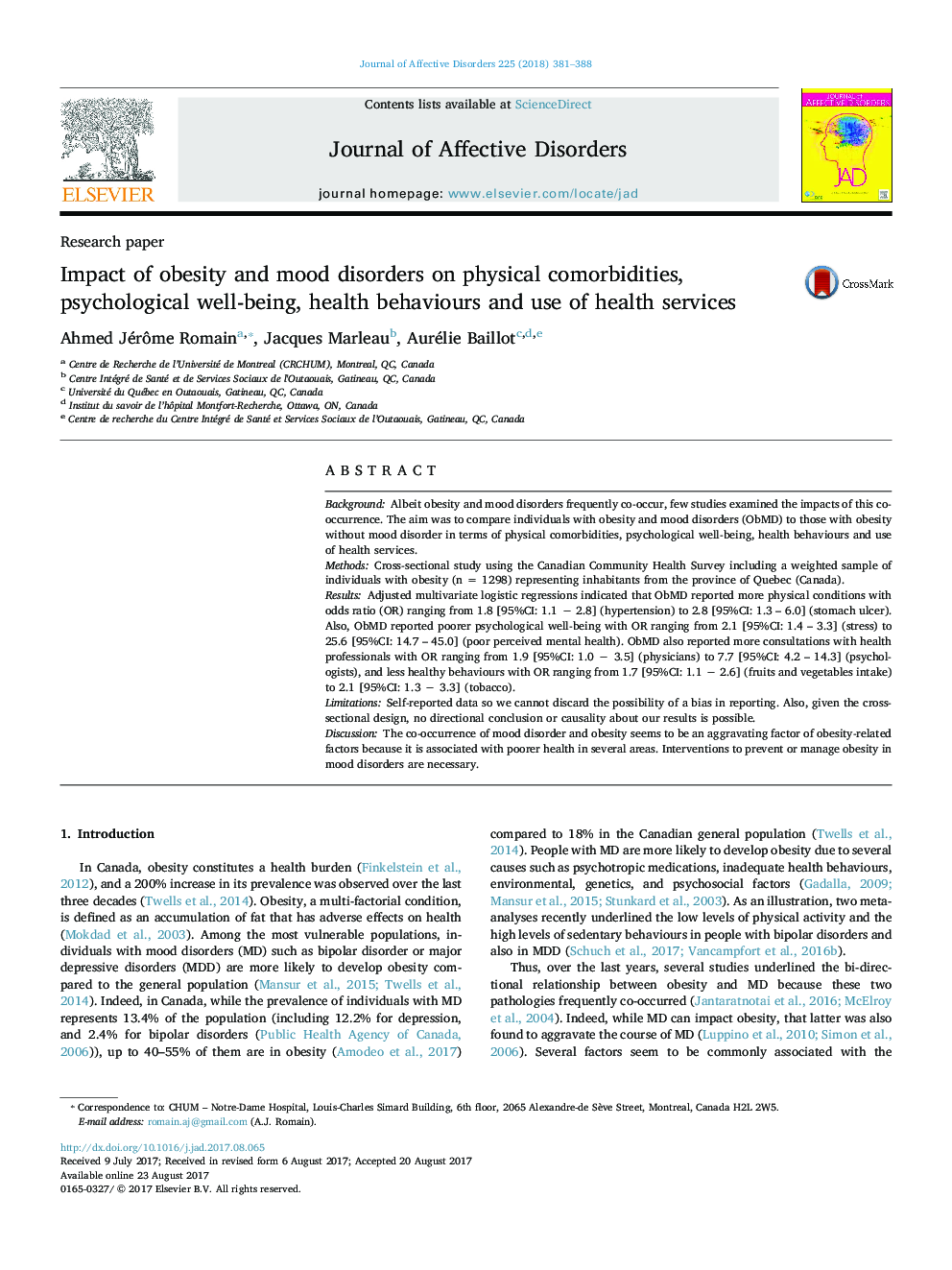| Article ID | Journal | Published Year | Pages | File Type |
|---|---|---|---|---|
| 5721736 | Journal of Affective Disorders | 2018 | 8 Pages |
â¢Obesity and mood disorders frequently co-occur.â¢We compared people with obesity and no mood disorders to those with obesity and mood disorders.â¢People with obesity and mood disorders reported more physical comorbidities and multimorbidity.â¢People with obesity and mood disorders had poorer psychological well-being and mental health.â¢People with obesity and mood disorders had less adequate health behaviours and more use of health services.â¢Interventions are needed to counteract or prevent the adverse effects of obesity among people with mood disorders.
BackgroundAlbeit obesity and mood disorders frequently co-occur, few studies examined the impacts of this co-occurrence. The aim was to compare individuals with obesity and mood disorders (ObMD) to those with obesity without mood disorder in terms of physical comorbidities, psychological well-being, health behaviours and use of health services.MethodsCross-sectional study using the Canadian Community Health Survey including a weighted sample of individuals with obesity (n = 1298) representing inhabitants from the province of Quebec (Canada).ResultsAdjusted multivariate logistic regressions indicated that ObMD reported more physical conditions with odds ratio (OR) ranging from 1.8 [95%CI: 1.1 â 2.8] (hypertension) to 2.8 [95%CI: 1.3 - 6.0] (stomach ulcer). Also, ObMD reported poorer psychological well-being with OR ranging from 2.1 [95%CI: 1.4 - 3.3] (stress) to 25.6 [95%CI: 14.7 - 45.0] (poor perceived mental health). ObMD also reported more consultations with health professionals with OR ranging from 1.9 [95%CI: 1.0 â 3.5] (physicians) to 7.7 [95%CI: 4.2 - 14.3] (psychologists), and less healthy behaviours with OR ranging from 1.7 [95%CI: 1.1 â 2.6] (fruits and vegetables intake) to 2.1 [95%CI: 1.3 â 3.3] (tobacco).LimitationsSelf-reported data so we cannot discard the possibility of a bias in reporting. Also, given the cross-sectional design, no directional conclusion or causality about our results is possible.DiscussionThe co-occurrence of mood disorder and obesity seems to be an aggravating factor of obesity-related factors because it is associated with poorer health in several areas. Interventions to prevent or manage obesity in mood disorders are necessary.
